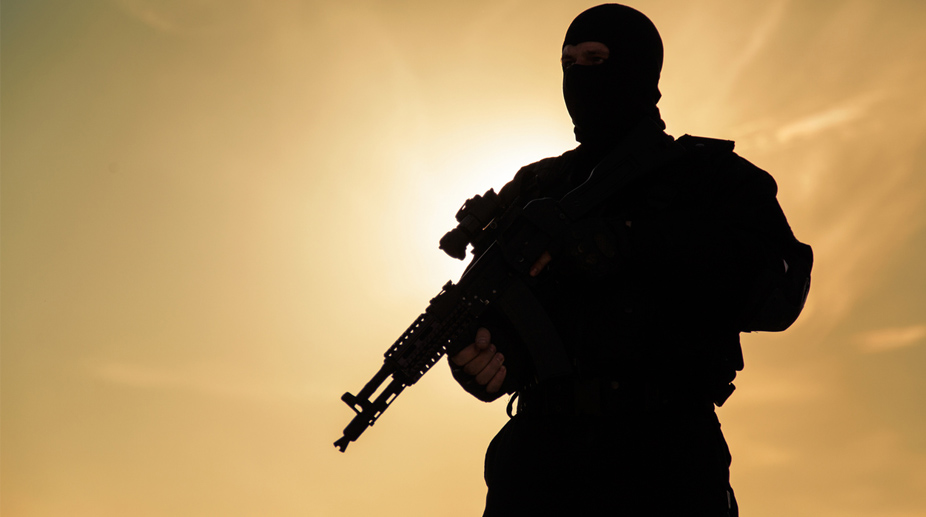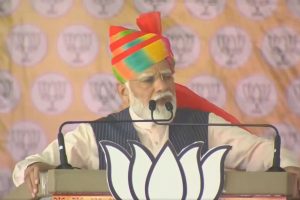As everyone knows, the demand for the Pakistan law minister’s resignation cloaked another unarticulated desire: that Pakistan should be an Islamic state. But what exactly does that mean?
In post-Shah Iran, in Afghanistan during the Taliban’s Islamic Emirate, and more recently in parts of Iraq and Syria, clerics have claimed that the governments they established were not only religiously correct but also, more broadly, part of new Islamic states. And according to the Saudi constitution, that country also qualifies. “The Kingdom of Saudi Arabia,” the constitution proclaims: “is a sovereign Arab Islamic state with Islam as its religion; God’s Book and the Sunnah of His Prophet, God’s prayers and peace be upon him, are its constitution…”
When he declared his caliphate in 2014, Abu Bakr al-Baghdadi’s first claim was that he alone was in charge: “The legality of all emirates, groups, states, and organisations, becomes null by the expansion of the caliph’s authority and arrival of its troops to their areas.” Then, much like any secular politician, he made a series of vague promises, vowing to “build, reform, remove oppression, spread justice, and bring about safety and tranquillity… courts have been established to resolve disputes and complaints. Evil has been removed.”
Baghdadi’s version of heaven on earth turned out to be well short of eternal. But some clerics believe he was from the outset mistaken in his claim to run an Islamic state. Soon after the self-proclaimed caliph gave his famous sermon in Mosul’s Grand Mosque, the scholar Yusef al-Qaradawi insisted that Baghdadi was in violation of Sharia law. “We look forward to the coming, as soon as possible, of the caliphate,” he said, “but the declaration issued by the Islamic State is void under Sharia.”
The title of caliph, he went on, can “only be given by the entire Muslim nation” and not by a single group. Meanwhile, a spokesman for the Grand Imam of Al Azhar said: “The Islamic caliphate can’t be restored by force. Occupying a country and killing half of its population … this is not an Islamic state, this is terrorism.”
The concept of an Islamic state will always be contested.
So how to adjudicate between the rival claims and sharply different views of Iranian Shias, Taliban clerics, Saudi royals, Iraqi insurgents and their critics? The case of the Islamic Republic of Pakistan raises its own dilemmas. According to Article 227 of its Constitution, all Pakistan’s laws “shall be brought in conformity with the Injunctions of Islam as laid down in the Holy Quran and Sunnah”.
Having said that, the ‘Preamble’ makes it clear that the country was intended to be a democratic state as much as an explicitly Islamic one. “Faithful to the declaration made by the Founder of Pakistan, Quaid-i-Azam Mohammad Ali Jinnah,” it reads, “Pakistan would be a democratic State based on Islamic principles of social justice.”
There is considerable evidence — including that famous August 1947 address to the constitutional assembly — that what Jinnah had in mind was not an Islamic state but a state for Muslims to live in without fear of persecution.
The 1940 resolution of the All India Muslim League made no reference to an ‘Islamic state’, and many religious parties, committed as they were to pan Islamism, opposed the idea of Pakistan because they did not envision it becoming an Islamic state. After all, if they did believe it would be an Islamic state, how could they oppose it? The clerics focused on constitutional issues and certain provisions such as the requirement that the president be a Muslim thereby giving Pakistan’s polity a distinctly Islamic hue. All this, however, clearly fell short of the Saudi idea that the basic Islamic texts are themselves the constitution.
General Zia ul Haq’s attempt to Islamicise Pakistani society did introduce Islamic punishment for criminal acts such as amputations. He also called parliament the Majlis-i-Shura and introduced Sharia courts. But the limits to Zia’s religious ambitions soon became all too apparent. When the Sharia courts were barred from giving judgements on Zia’s martial law it was clear that he was not serious about creating an Islamic state but was simply using Islam to bolster his legitimacy.
The concept of an Islamic state will always be contested. Many of the protesters rampaging through the streets take pride in the memory of the Ottoman Empire, considering it to have been an Islamic state. But, if they knew anything about it, the same protesters would also think the lifestyle of many Ottoman rulers as hopelessly un-Islamic.
There is one point Ayatollah Khomeini, Abu Bakr al-Baghdadi and Mullah Omar could surely agree on. For an Islamic state to exist, the clerics have to be in charge. And by that standard, for all its constitutional provisions, Saudi Arabia remains a monarchy, not an Islamic state. And the Islamic Republic of Pakistan doesn’t come close. Not yet.
The writer is a British journalist and author of Pakistan: Eye of the Storm.
Dawn/ANN.











